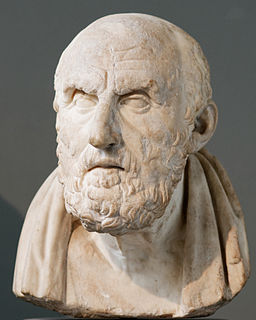A Quote by Hippolyte Taine
The search for causes must come after the collection of facts.
Related Quotes
In the final, the positive, state, the mind has given over the vain search after absolute notions, the origin and destination of the universe, and the causes of phenomena, and applies itself to the study of their laws - that is, their invariable relations of succession and resemblance. Reasoning and observation, duly combined, are the means of this knowledge. What is now understood when we speak of an explanation of facts is simply the establishment of a connection between single phenomena and some general facts.
[The scientist] believes passionately in facts, in measured facts. He believes there are no bad facts, that all facts are good facts, though they may be facts about bad things, and his intellectual satisfaction can come only from the acquisition of accurately known facts, from their organization into a body of knowledge, in which the inter-relationship of the measured facts is the dominant consideration.
I don't go into any album with a concept or a deliberate direction. It's more letting the best music that really appeals to me at the time, the best songs that I find after many months and years of search and sifting through my collection, and asking radio people and journalists. It's really an ongoing search that's as much daunting as it is somewhat exciting.
I can't help but think that it's an unfortunate custom to name children after people who come to sticky ends. Even if they are fictional characters, it doesn't bode well for the poor things. There are too many Judes and Tesses and Clarissas and Cordelias around. If we must name our children after literary figures then we should search out happy ones, although it's true they are much harder to find.
Your enlightenment is perfect only when silence has come to be a celebration. Hence my insistence that after you meditate you must celebrate. After you have been silent you must enjoy it, you must have a thanksgiving. A deep gratitude must be shown towards the whole just for the opportunity that you are, that you can meditate, that you can be silent, that you can laugh.




































